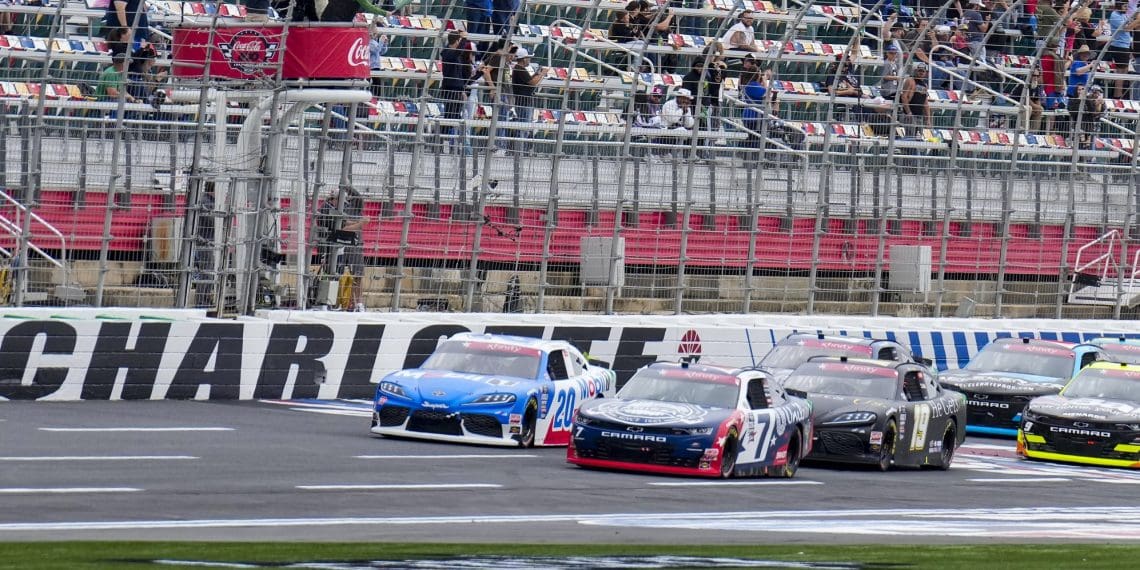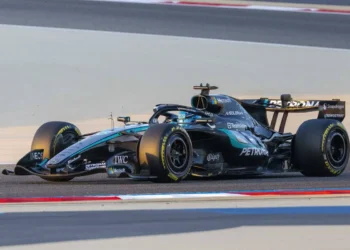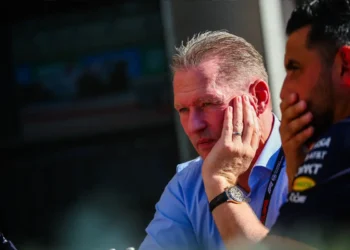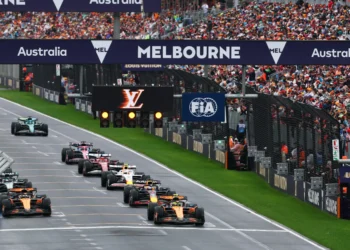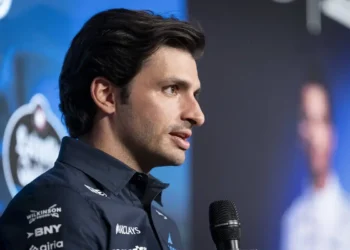NASCAR, once a bastion of grit, underdog triumphs, and down-to-earth drivers, now finds itself in an era of transformation—and not all of it is for the better. Declining Fortune 500 sponsorships, plummeting TV ratings, and rising costs are creating challenges for the sport. Compounded by the growing financial barriers for young, aspiring racers, many, including veteran driver Mark Martin, fear that NASCAR might be losing its authentic spirit.
The Sponsorship Shift: A Changing Culture
One of the starkest contrasts between NASCAR’s glory days and its modern state is how sponsorship works. In Martin’s time, teams like Roush Racing and Hendrick Motorsports secured sponsors, focusing solely on assembling the best talent for the car. Today, drivers often bring their own sponsorship deals to secure a ride, creating a system that prioritizes financial backing over pure talent.
Martin weighed in on the shift, acknowledging the duality of the situation:
“I applaud anybody who has sponsorship attached to them… Riley Herbst has talent and deserves his rise and the sponsorship. But I am certainly a pro-old-school type of guy.” Herbst, recently signed by 23XI Racing, benefits from his partnership with Monster Energy and his family’s financial background, which Martin diplomatically noted was an advantage unavailable to many underdog drivers.
This sponsorship-driven approach has created an environment where young drivers from less affluent backgrounds face significant hurdles, potentially alienating the grassroots talent that once defined the sport.
The Pressure of Corporate Influence
Beyond funding, Martin voiced concerns about the growing influence of corporate expectations on drivers’ authenticity. NASCAR has always celebrated its larger-than-life personalities—drivers like Dale Earnhardt Sr., whose raw edge connected deeply with fans. But in today’s hyper-commercialized era, drivers are expected to embody brand ambassadors as much as racers.
Martin noted how corporate pressure can weigh heavily on a racer’s mind:
“These drivers start at five years old. They’re not making it happen with their hands anymore—they’re making it happen with their hands on the steering wheel.” While he acknowledged the necessity of adapting to this new reality, Martin lamented the loss of the scrappy, DIY ethos that defined his era.
The Case of Kyle Larson: A Glimmer of Old-School Spirit
Amid the corporate dominance, Martin pointed to Kyle Larson as a beacon of authentic racing talent. Larson’s triumphant return in 2021 after a year-long exile showcased his raw skill and resilience, reminiscent of the underdog stories that once defined NASCAR.
“Kyle Larson is a once-in-a-generation talent that we have the privilege of witnessing,” Martin said, crediting Hendrick Motorsports for taking a chance on him and underscoring how Larson embodies the grit and passion of NASCAR’s roots.
The Rising Costs of Racing
Operating a race team in the current NASCAR ecosystem is an expensive endeavor, and the rising costs create barriers for teams and drivers alike. Even with cost-saving measures like the Next Gen cars, the financial demands continue to climb. For teams to remain competitive, they must secure significant sponsorship deals—further embedding the pay-to-play dynamic into the sport.
Is NASCAR Losing Its Spirit?
The debate over NASCAR’s authenticity boils down to whether the sport’s commercialization is an inevitable evolution or a betrayal of its roots. For Martin, the spirit of NASCAR lies in its underdog stories and drivers who rose from humble beginnings to achieve greatness. While he understands the realities of modern racing, he cautions against losing sight of what made the sport resonate with millions.
“We do live in a different age. It’s a different culture, but we have to remember the underdogs who made this sport what it is,” Martin emphasized.
The Road Ahead
As NASCAR grapples with these challenges, the question remains: Can it strike a balance between corporate realities and preserving its authentic spirit? Fans and drivers alike are watching closely, hoping for a future that embraces the grit, resilience, and excitement that first made NASCAR a household name.

